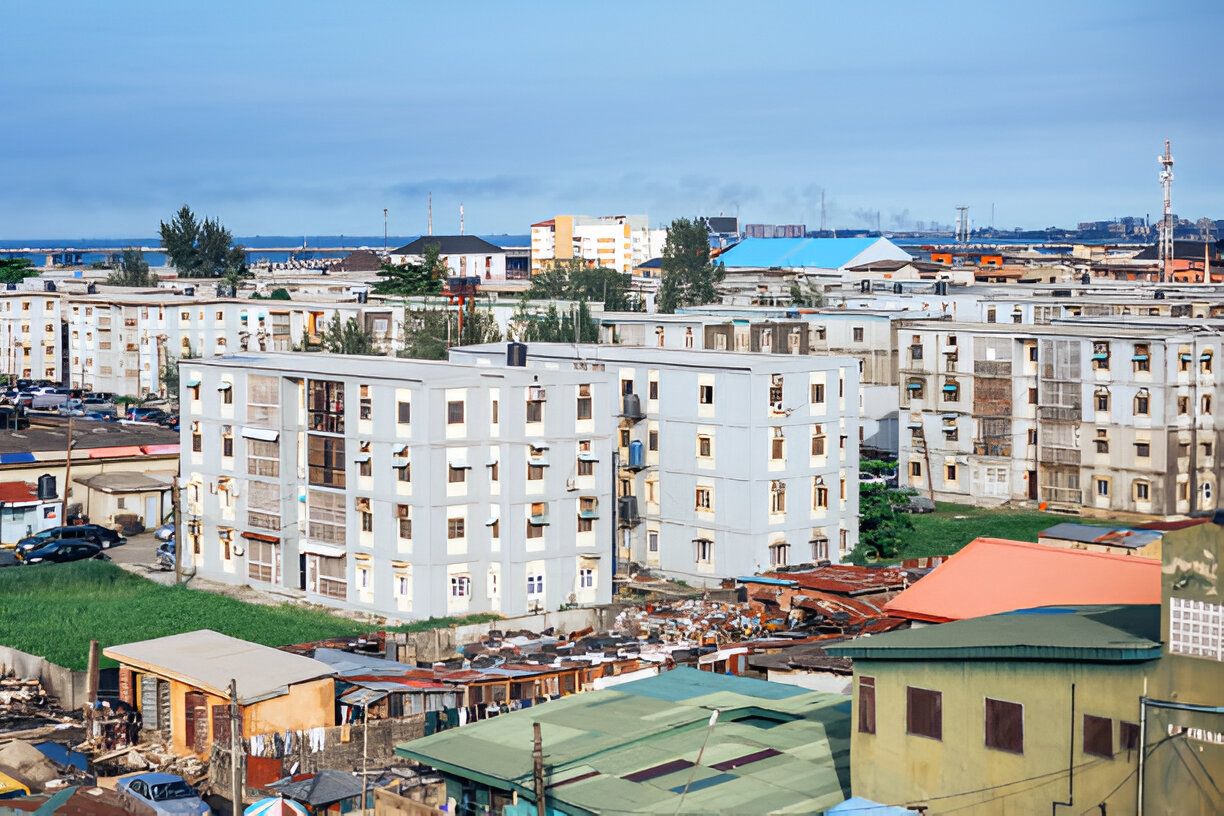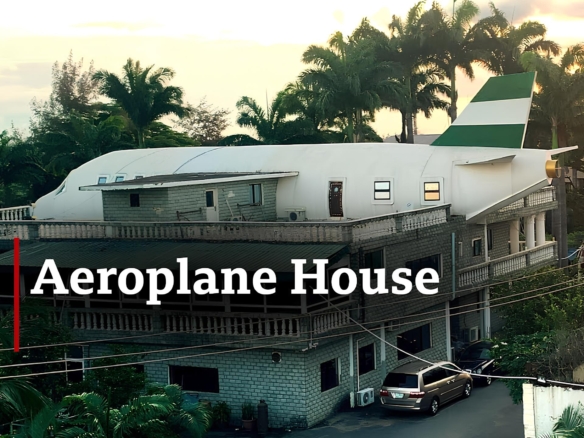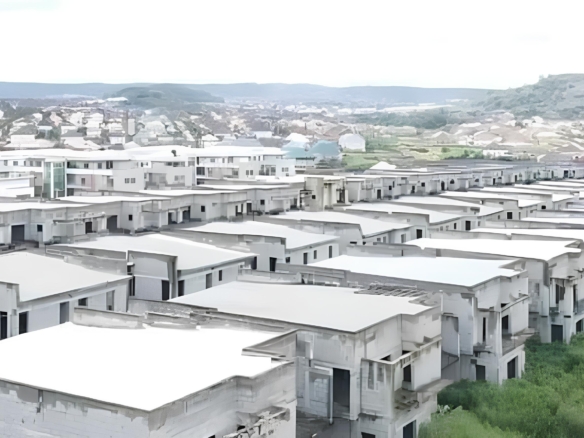Comparing Real Estate Markets: Lagos vs. Abuja
When considering the purchase of property in Nigeria, two cities often stand out: Lagos and Abuja. Both cities offer unique opportunities and challenges for real estate investors and potential homeowners. In this blog post, we will compare the real estate markets of Lagos and Abuja to help you make an informed decision.
Lagos: The Commercial Hub
1. Economic Activity
Lagos is Nigeria’s commercial and financial hub. The city hosts the headquarters of many multinational corporations, banks, and businesses, making it a vibrant epicenter of economic activity. This bustling metropolis is not only the largest city in Nigeria but also one of the fastest-growing cities in the world, contributing significantly to the country’s GDP.
The presence of these corporations and financial institutions fosters a dynamic business environment, attracting professionals and entrepreneurs from across the globe. This influx of talent and investment leads to a thriving job market and a diverse, cosmopolitan population, further stimulating economic growth.
Moreover, Lagos is home to the Nigerian Stock Exchange, which serves as a crucial financial market for the entire region. The city’s ports and logistics infrastructure are among the busiest in Africa, facilitating extensive trade and commerce. This strategic position enhances Lagos’s role as a gateway for imports and exports, reinforcing its status as a pivotal commercial hub.
The robust economic activity in Lagos drives a high demand for both residential and commercial properties. The real estate market in the city is continually evolving to meet the needs of its growing population and the expanding business sector. From luxury apartments and high-rise office buildings to more affordable housing and commercial spaces, there is a diverse range of property developments underway.
Investors are particularly drawn to Lagos due to its promising returns on real estate investments. The city’s expanding middle class and increasing disposable income levels contribute to a buoyant property market. Additionally, ongoing infrastructural improvements, such as new road networks, bridges, and public transportation projects, further enhance the city’s attractiveness for real estate development.
2. Population and Demographics:
With a population exceeding 20 million, Lagos is not only the largest city in Nigeria but also one of the fastest-growing cities in the world. The city’s rapid population growth is driven by both natural increase and significant migration from other parts of Nigeria and neighboring countries. This influx of people searching for better economic opportunities contributes to Lagos’s dynamic and diverse demographic landscape.
The high population density of Lagos creates a vibrant rental market, as many residents, especially newcomers, seek accommodation in the city. This demand for rental properties spans various segments, from luxury apartments to more affordable housing options. As a result, property developers and investors find substantial opportunities in the rental market, catering to the diverse needs of the city’s inhabitants.
However, the burgeoning population also leads to higher property prices, primarily due to the limited supply of land. The scarcity of available land for development, particularly in prime locations, drives up real estate values, making property investment in Lagos both lucrative and competitive. This phenomenon is especially pronounced in central business districts and high-demand residential areas, where space is at a premium.
Despite these challenges, Lagos continues to expand, with ongoing infrastructural developments aimed at accommodating its growing population. Efforts to develop new residential areas, improve public transportation, and upgrade existing infrastructure are critical in managing the city’s growth. Initiatives such as the Eko Atlantic project, a planned city being constructed on reclaimed land along the coast, exemplify innovative solutions to address land scarcity and urban expansion.
Moreover, Lagos’s youthful demographic, with a significant proportion of the population under 30, drives demand for modern, adaptable housing solutions. This young, energetic population is increasingly seeking contemporary living spaces that offer convenience, connectivity, and lifestyle amenities. Consequently, developers are focusing on mixed-use developments that combine residential, commercial, and recreational facilities to meet these evolving preferences.
3. Infrastructure and Development:
Lagos boasts a mix of well-developed and rapidly developing areas, reflecting its dynamic urban landscape. Areas like Victoria Island, Ikoyi, and Lekki are renowned for their upscale properties and modern infrastructure. These neighborhoods are characterized by high-end residential complexes, luxury apartments, and state-of-the-art office buildings, catering to the affluent population and expatriates. The well-planned streets, reliable utilities, and proximity to commercial hubs make these areas highly desirable for both residents and businesses.
Victoria Island, for instance, is a prime business district with numerous multinational corporations, upscale hotels, and fine dining establishments. Its modern infrastructure includes well-maintained roads, efficient drainage systems, and reliable electricity supply, contributing to its reputation as a high-end commercial and residential area. Similarly, Ikoyi is known for its opulent mansions, gated communities, and lush greenery, offering a serene environment amidst the bustling city.
Lekki, a rapidly developing area, has seen significant growth in recent years. It features a mix of residential, commercial, and recreational developments, making it a hotspot for real estate investment. The Lekki Free Trade Zone, a major economic hub, further boosts the area’s appeal by attracting businesses and industries. Additionally, ongoing infrastructural projects like the Lekki-Epe Expressway and the Fourth Mainland Bridge aim to improve connectivity and reduce traffic congestion in the area.
However, despite these pockets of modernity, some parts of Lagos still struggle with infrastructure challenges. Traffic congestion is a significant issue, exacerbated by the city’s rapid population growth and limited road networks. Commuters often face long travel times, impacting productivity and quality of life. The Lagos State Government is actively working to address this through various initiatives, such as expanding road networks, promoting public transportation, and implementing traffic management systems.
Inadequate public services, including inconsistent water supply and waste management, pose additional challenges in certain areas. Informal settlements and densely populated neighborhoods often lack access to essential services, leading to substandard living conditions for many residents. The government and private sector are collaborating on various urban renewal projects aimed at improving infrastructure and enhancing the quality of life in these underserved areas.
Efforts to develop new residential and commercial zones, upgrade existing infrastructure, and enhance public services are ongoing. Projects like the Eko Atlantic City, a planned city being constructed on reclaimed land along the coast, exemplify innovative solutions to address land scarcity and urban expansion. This ambitious project aims to provide modern living and working spaces while incorporating sustainable practices and advanced infrastructure.
4. Property Prices:
Property prices in Lagos can be significantly higher than in other parts of Nigeria, reflecting the city’s status as the country’s commercial and financial hub. High demand for real estate, coupled with limited space, particularly in prime areas, drives up property prices. Neighborhoods like Victoria Island, Ikoyi, and Lekki are known for their premium properties, with prices often exceeding those in other regions.
In prime locations, the demand for luxury apartments, high-end office spaces, and exclusive residential properties is consistently high. These areas attract wealthy individuals, expatriates, and multinational corporations seeking prestigious addresses. The scarcity of land in these sought-after districts further exacerbates the price inflation, making properties in these areas some of the most expensive in the country.
For investors, the high property prices in Lagos can translate into attractive rental yields and potential for significant capital appreciation. The city’s vibrant rental market, driven by a growing population and a steady influx of professionals and expatriates, offers lucrative opportunities. Rental properties, especially in well-developed neighborhoods, can command premium rents, providing investors with consistent income streams.
Additionally, the potential for capital appreciation in Lagos is substantial. As the city continues to develop and expand, property values in both established and emerging areas are likely to increase. Ongoing infrastructural projects, such as the construction of new roads, bridges, and public transportation systems, further enhance the appeal of investing in Lagos real estate. These developments not only improve connectivity and accessibility but also boost property values in the surrounding areas.
Moreover, the diverse real estate market in Lagos offers various investment options, from residential apartments and commercial office spaces to mixed-use developments and industrial properties. Investors can choose from a range of property types and price points, catering to different investment strategies and risk appetites. The city’s economic growth and strategic importance as a commercial hub provide a robust foundation for long-term property investment.
However, navigating the Lagos property market requires careful consideration and due diligence. Prospective investors need to be aware of regulatory requirements, property ownership laws, and market dynamics. Engaging with reputable real estate agents, conducting thorough market research, and understanding the local context are essential steps in making informed investment decisions.
Abuja: The Administrative Capital
- Political and Administrative Significance
As the capital city of Nigeria, Abuja holds immense political and administrative significance. It is home to the country’s government offices, foreign embassies, and numerous international organizations. This status as the administrative heart of Nigeria attracts a steady stream of professionals, diplomats, and expatriates, ensuring a stable demand for real estate. The presence of key government institutions, including the Presidential Complex, National Assembly, and Supreme Court, reinforces Abuja’s role as the center of political power and governance. Additionally, international organizations and embassies contribute to a cosmopolitan atmosphere, fostering a diverse and vibrant community.
- Planned City with Modern Infrastructure
Abuja is a planned city, meticulously designed to accommodate its role as the capital. The city’s layout features well-laid-out roads, modern infrastructure, and ample green spaces, contributing to a high quality of life. Areas like Maitama, Asokoro, and Wuse are renowned for their luxury properties, excellent amenities, and serene environments. Maitama, for example, is known for its upscale residential neighborhoods, embassies, and diplomatic missions. Asokoro hosts numerous government buildings and offers luxurious living options, while Wuse is a bustling district with a mix of commercial and residential properties. The city’s modern infrastructure includes reliable utilities, efficient public transportation, and well-maintained public facilities, enhancing its appeal to residents and investors alike.
- Population and Growth
Abuja has a smaller population compared to Lagos, with around 3 million residents. However, the city is experiencing rapid growth due to internal migration and urbanization. Many people from different parts of Nigeria move to Abuja in search of better economic opportunities and improved living conditions. This influx of new residents drives an increasing demand for housing, spurring real estate development across the city. The government’s focus on decentralization and development of satellite towns around Abuja, such as Kubwa and Karu, aims to accommodate the growing population and reduce pressure on the city’s core areas. This population growth is accompanied by expanding commercial activities, further boosting the real estate market.
- Property Prices
Property prices in Abuja tend to be more stable compared to Lagos. While luxury properties in prime areas like Maitama, Asokoro, and Wuse command high prices, there are also more affordable housing options available in the outskirts and satellite towns. The planned nature of Abuja often translates into higher-quality living conditions, with organised neighbourhoods, reliable infrastructure, and access to essential services. Affordable housing projects and government initiatives aimed at providing low-cost housing contribute to a diverse property market catering to different income levels. Investors in Abuja can benefit from stable property values and the potential for steady rental income, particularly in well-developed and strategically located areas.
Investment Considerations
1. Rental Yields Lagos typically offers higher rental yields due to its high demand and economic activity. However, the high property prices can be a barrier to entry for some investors. Abuja offers stable rental yields with potentially lower entry costs.
2. Market Stability Abuja’s market is considered more stable due to its administrative significance and planned development. Lagos, while lucrative, can be more volatile due to its rapid population growth and economic fluctuations.
3. Lifestyle and Amenities Lagos offers a bustling urban lifestyle with a wide range of entertainment, dining, and cultural activities. Abuja, on the other hand, offers a more serene environment with better-planned neighborhoods and less congestion.
Conclusion
Choosing between Lagos and Abuja for real estate investment or homeownership depends on your priorities and investment goals. Lagos offers higher potential returns but comes with higher risks and costs. Abuja provides a stable market with a balanced mix of luxury and affordable properties.
If you’re ready to explore property options in Lagos or Abuja, visit the Property tab on Unlockahouse for the latest listings and expert advice. Check out our properties here.
Unlock the door to your dream home with Unlockahouse!





